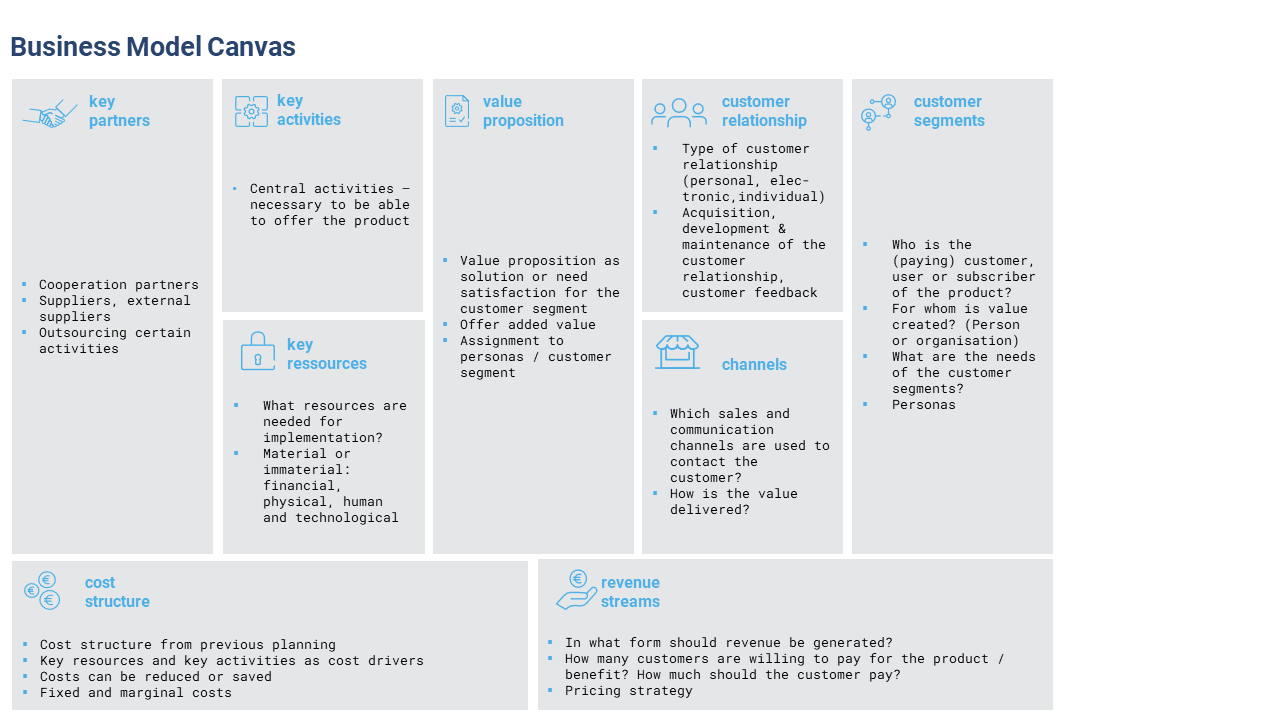- Levin Winzinger
- 19.02.26
- 6 min
- Success factor sustainability, Bioeconomy
Your contact person
Benjamin Raab
Today, everyone talks about the importance of business model innovation for companies. But what exactly does the buzzword “business model” mean and what are the crucial facts about it? In this blog you will find out!
Even before the term “business model” has been that public, every company had a business model. In the past, they were quite easy to understand. The baker who sells rolls; the hairdresser who cuts hair or the video store that rents films. Today, their complexity is constantly increasing. Reasons for this are digitalisation in particular, but also increased customer expectations and an increased competitive situation. As a result, it is becoming increasingly important for companies to demonstrate, communicate and constantly develop their own business model.
In simple terms we can say a business model is an overall system that creates added value and generates income. Different understandings of what concrete content belongs to a business model can differ. However, the basic components are usually the value proposition, the target group, the value chain, and the revenue mechanism.
Over time, different ways of representing business models were developed. Mostly, the Business Model Canvas is used as a basis and template.

The Business Model Canvas includes a total of nine different fields: Value proposition, customer segments, customer relationships, channels, key partners, key activities, key resources, cost structure and revenue streams. By working through the different fields, the overall system and representation of a business model is created.
The authors of the St. Gallen Business Model Navigator discovered that 90 percent of all business models are not really new but can be traced back to 55 existing patterns. The overview of existing models is particularly suitable as inspiration in the process of a business model innovation.
Especially as a newcomer in the field of presentation, development and innovation of business models, it is helpful to look at business models of well-known companies and point them out independently. If for example the business models of Nestlé - Nespresso, Gillette and Hewlett-Packard are considered, clear parallels can be seen:
Each of the companies successfully introduced the Razor and Blade business model in its industry. A basic product is sold cheaply. To use the total product, the customer has to buy the expensive add-on product. This is a consumable product that has to be bought regularly. In this way, the company achieves long-term, close customer loyalty and can generate regular sales.
Disruptive business models have enabled companies to break through industry logics and fundamentally change industries. The evolution of existing business models also offers new opportunities for companies to meet customer satisfaction and generate sustainable revenue. This is why business model innovation should matter today.
Would you like to learn more about business model innovation and how you can implement it in your company? Then we look forward to sharing our expertise with you. Feel free to contact us by email.
Author: Stefanie Bango

Your contact person
Benjamin Raab
EurA AG
T- 079619256-0Max-Eyth-Straße 2
73479 Ellwangen
info@eura-ag.com